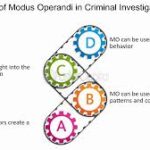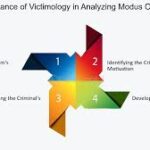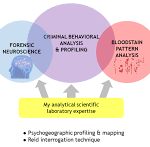Introduction:

In today’s complex world, understanding human behavior is not merely an academic pursuit but a practical necessity in various fields ranging from law enforcement to marketing. Psychological profiling, often portrayed in popular media as a tool for solving crimes, encompasses a multifaceted approach to understanding human behavior. This essay delves into the concept of psychological profiling, exploring its origins, methodologies, applications, and ethical considerations.
Origins and Development:

Psychological profiling, also known as offender profiling or criminal profiling, emerged in the mid-20th century as a tool to aid law enforcement agencies in apprehending criminals. Its roots can be traced back to the work of Dr. James A. Brussel, a psychiatrist who assisted the New York City Police Department in capturing the “Mad Bomber” in the 1950s. Brussel’s approach involved analyzing crime scenes and generating hypotheses about the offender’s personality traits and psychological makeup.
Over the years, psychological profiling has evolved from a largely intuitive process to a more systematic and evidence-based methodology. Researchers such as FBI Special Agent John Douglas and his colleagues contributed significantly to the development of profiling techniques through their work on serial murder cases. Their insights into the behavior patterns and motivations of serial offenders laid the groundwork for modern profiling methodologies.
Methodologies:

Psychological profiling encompasses various methodologies, including investigative psychology, geographic profiling, and criminal investigative analysis. Investigative psychology focuses on understanding the thought processes and decision-making strategies of offenders through the analysis of crime scene evidence, victimology, and offender behavior.
Geographic profiling, pioneered by Dr. Kim Rossmo, involves the analysis of spatial patterns in crime locations to identify the most probable area of offender residence. This approach relies on principles of environmental psychology and criminology to narrow down the search area for law enforcement agencies.
Criminal investigative analysis combines psychological principles with crime scene analysis to develop profiles of offenders based on their modus operandi, signature behaviors, and motives. This approach aims to provide investigators with insights into the offender’s personality, background, and potential future behavior.
Applications:

Psychological profiling finds applications in various fields beyond law enforcement, including criminal justice, national security, and organizational psychology. In criminal justice, profiling techniques are used to assist in criminal investigations, inform case strategies, and prioritize suspects based on behavioral indicators.
Within the realm of national security, profiling is employed to assess threats, identify potential terrorists, and prevent future attacks. By analyzing patterns of behavior and communication, intelligence agencies can anticipate and mitigate security risks more effectively.
In organizational psychology, profiling techniques are utilized to assess employee behavior, improve team dynamics, and identify individuals with high potential for leadership roles. By understanding the psychological makeup of employees, organizations can optimize performance, enhance decision-making, and foster a positive work environment.
Ethical Considerations:
Despite its potential benefits, psychological profiling raises ethical concerns related to privacy, bias, and the presumption of innocence. Profiling techniques often involve the collection and analysis of sensitive personal data, raising questions about the boundaries of individual privacy and autonomy.
Moreover, profiling methodologies may be susceptible to biases based on factors such as race, ethnicity, and socioeconomic status. Improperly conducted profiling can lead to unjustified suspicion and discrimination against certain groups, undermining the principles of fairness and equality.

Furthermore, the presumption of innocence is a fundamental tenet of criminal justice, yet profiling techniques may predispose investigators to view certain individuals as suspects based on behavioral indicators alone. This can lead to miscarriages of justice and the wrongful targeting of innocent individuals
Certainly, let’s delve deeper into the authentic information regarding psychological profiling, exploring its nuances, methodologies, real-world applications, and ethical considerations.
Methodologies of Psychological Profiling:
Inductive Profiling: This approach involves deriving patterns and characteristics of offenders from empirical data collected from a sample of known cases. It relies heavily on statistical analysis and aims to generalize findings to predict the behavior of unknown offenders.
Deductive Profiling: In contrast to inductive profiling, deductive profiling begins with a theoretical framework based on psychological principles. Profilers use this framework to interpret crime scene evidence and develop hypotheses about the offender’s personality, motivations, and behavior.
Real-World Applications:

Law Enforcement:
Psychological profiling is extensively used by law enforcement agencies to aid in criminal investigations, particularly in cases involving serial crimes, violent offenses, and sexual assaults. Profilers assist investigators in narrowing down suspect lists, prioritizing leads, and understanding offender behavior to anticipate future actions.
Counterterrorism: Intelligence agencies employ profiling techniques to identify and assess potential threats from terrorist organizations. By analyzing communication patterns, travel histories, and behavioral indicators, profilers help anticipate terrorist activities and disrupt plots before they unfold.
Commercial Applications: Beyond the realm of law enforcement and national security, psychological profiling is utilized in marketing, advertising, and consumer behavior analysis. By understanding the psychological preferences and tendencies of target demographics, businesses can tailor their products, messaging, and marketing strategies to maximize appeal and effectiveness.
Challenges and Ethical Considerations:

Privacy Concerns: The collection and analysis of personal data for profiling purposes raise significant privacy concerns, particularly in the age of big data and digital surveillance. Profilers must navigate ethical boundaries and ensure that their practices comply with legal and ethical standards regarding data protection and individual privacy.
Bias and Stereotyping: Profiling methodologies may inadvertently perpetuate biases and stereotypes, leading to unfair treatment and discrimination against certain groups. It is essential for profilers to critically examine their assumptions and interpretations to mitigate the impact of bias on their analyses and conclusions.
Presumption of Innocence: Psychological profiling should not be used as the sole basis for suspicion or prosecution, as it does not provide definitive evidence of guilt. Profilers must emphasize the probabilistic nature of their assessments and work collaboratively with investigators to corroborate findings through additional evidence and investigative techniques.
Advancements and Future Directions:
Integration of Technology
: Advancements in data analytics, artificial intelligence, and machine learning are reshaping the landscape of psychological profiling. Automated profiling tools and algorithms can process large datasets more efficiently and identify subtle patterns and correlations that human analysts might overlook.
Interdisciplinary Collaboration: Psychological profiling benefits from interdisciplinary collaboration, drawing insights from fields such as psychology, criminology, neuroscience, and computer science. By integrating diverse perspectives and methodologies, profilers can enhance the accuracy and reliability of their analyses.
Conclusion:
Psychological profiling offers valuable insights into human behavior, aiding law enforcement agencies, security organizations, and businesses in various capacities. However, its effective use requires a nuanced understanding of its methodologies, limitations, and ethical considerations.
By continuing to refine profiling techniques, addressing biases, and upholding ethical standards, we can harness the power of psychological profiling to enhance public safety, organizational effectiveness, and our understanding of human behavior in the modern world.



